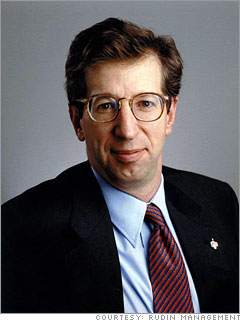President of New York real estate firm Rudin Management
In 1987 we were working on a couple of new projects, including 1675 Broadway, which was one of the first buildings built on the West Side after new zoning laws had been passed in the mid-'80s. We were in the middle of negotiating the lease with the advertising agency D'Arcy Masius Benton & Bowles. The crash happened a day before they were coming up to sign the lease. Everybody was very nervous about what was going to happen, but they fulfilled their commitment, and they have been a tenant ever since. The New York economy began to slow, but it took a couple of years to filter through. It wasn't immediate. Companies downtown in the financial services industry were moving to Midtown or going out of business. Subsequent buildings on the West Side in the late '80s and early '90s had problems. But my family is a long-term investor in and holder of real estate, so we were confident we could weather the storm. When the music stopped we were already sitting down. That's an expression my father liked, which means that when something goes wrong, you want to have a building full of good tenants.
The difference between now and 1987 is the position New York is in. In the '80s there were issues of crime, and the economic base and strength of the city were not as diversified or global. But today, both inside and outside the financial world, companies want to be here, young people want to be here. In 1987 the music stopped, but today, with the market dropping, the music hasn't stopped - it has merely changed its tune a bit.

